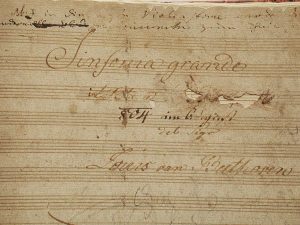Oui will rock you
There’s a great hymn, O Filii et Filiae, which is sung in many churches on the Sunday after Easter, because its text mirrors the gospel lesson of the day – the story of doubting Thomas. It is one of those instances of a gripping narrative wed to a simple yet interesting melody which, being roughly 600 years old, has clearly stood the test of time.
For me, it’s a chance to pull out one of my favorite organ pieces, don my beret, and pretend to be French. French organs stand out in that they are jam packed with fiery trumpets and other noisy stops, making them exceedingly loud – necessary to fill the cavern of a massive French cathedral with sound. Before the revolution, the French organ tradition included writing (or improvising) variations on popular chants or sacred melodies. Jean-François Dandrieu did just this when we wrote his Offertoire pour la fête de Pâques – variations on O Filii et Filiae, showcasing the terrifying thunder of French organs.
When I hear that sound, it makes me imagine a peasant from a village, coming into Paris and going into a church – and being petrified and awestruck at the sound of the organ. Our human fascination with loud sound, like the appeal of this hymntune, hasn’t changed.


Recent Comments